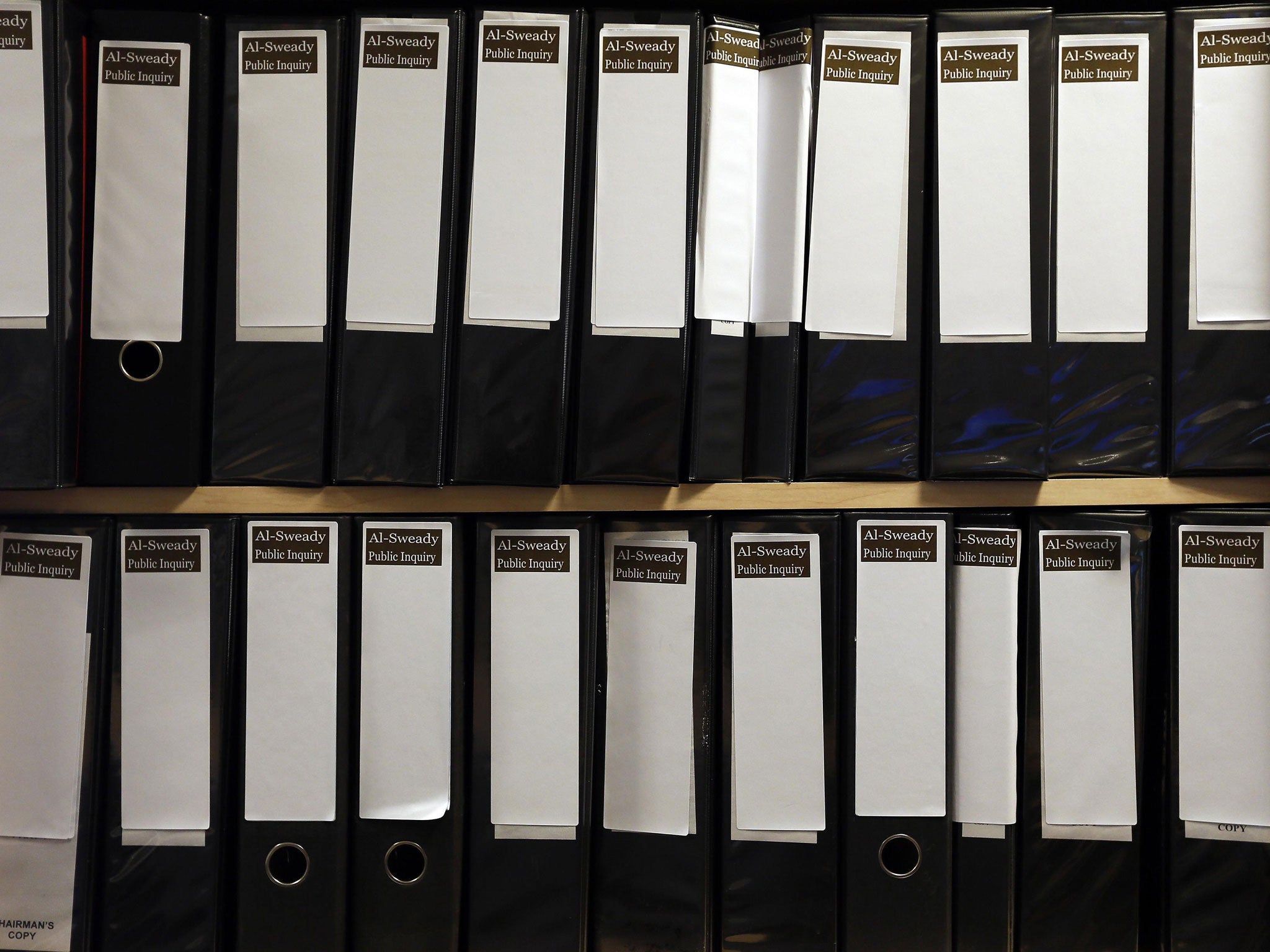Al-Swaiedi inquiry: Teenager was tortured and hanged, claims his uncle

A teenager who it is claimed was unlawfully killed by British troops in Iraq had been tortured and hanged, his uncle has claimed.
Khudur Al-Swaiedi said he was present when a number of body bags handed back by British forces were taken to hospital and opened, describing the scene as an "inhuman catastrophe".
Mr Al-Swaiedi, 48, is giving evidence to the Al-Sweady Public Inquiry, which is examining claims that UK soldiers mistreated and killed detainees after the "Battle of Danny Boy" in Iraq in May 2004.
It is alleged that Iraqis were unlawfully killed at Camp Abu Naji (CAN) near Majar-al-Kabir on May 14 and 15 2004, and detainees were ill-treated there and at Shaibah Logistics Base, where they were moved to.
The claims are vigorously denied by the Ministry of Defence (MoD), which says those who died were killed on the battlefield.
Mr Al-Swaiedi, who worked as a microbiologist at a nearby hospital said he washed the body of 19-year-old Hamid after it had been handed back by British forces.
In the first of two witness statements, made in July 2010, and released today as he appeared at the inquiry, he said he found signs of torture on the teenager, including a boot-shaped bruise on his forehead, as well as a broken arm, and bullet wounds, and there were signs he had been hanged.
The 48-year-old said discrepancies between various statements he had made, and between his evidence and that of other witnesses, was due to mistakes and some had been caused by translation in the past.
Mr Al-Swaiedi said after he heard about the battle on May 14, he went to the site where he and other people searched the battlefield, finding some dead bodies.
He said he stayed until around midnight, then the next day he and other relatives went to CAN where they saw the bodies being handed over.
"We saw ambulances. British army ambulances, from a distance. Things were being handed over. It turned out that those were body bags," he said.
They travelled to the Al-Sadr Hospital, where the bodies were taken, where he witnessed an " inhuman catastrophe" as the bags were opened.
In his statement he said injuries to the bodies not only included bullet wounds, but also missing eyes and, in one case, missing genitals.
Mr Al-Swaiedi told the inquiry today that he wrote the names of those he could identify on their body bags, but some were "disfigured".
"I examined one of the martyrs, until even I put my finger in the missing eye," he said.
When Hamid's body was brought from the vehicles, Mr Al-Swaiedi said he helped washed his body.
In his July 2010 statement, the 48-year-old said his nephew's injuries included bullet holes, "signs of torture on his chest", as well as "bruises by a boot to his forehead".
He said one of his arms were broken and there was a "hole in his neck".
"I would say the primary cause of death was hanging and torture," his statement said.
The inquiry heard Hamid's death certificate mentioned torture, but nothing about hanging.
But his uncle said a mistake had been made by not including it. He also gave the same explanation when asked about discrepancies between his account of injuries he had seen on other dead bodies, and the descriptions given by other witnesses.
He also said there had been problems with translation as he had given various statements, as well as in comments made to journalists.
The inquiry has heard that insurgents ambushed the Argyll and Sutherland Highlanders near the Danny Boy checkpoint on May 14 2004.
Counsel to the inquiry Jonathan Acton Davis QC said enemy dead would normally have been left on the battlefield, but 20 Iraqi bodies were taken to CAN, along with nine detainees.
It is alleged that not all 20 died on the battlefield, and at least one was killed by a British soldier after he had been returned alive to CAN.
Lawyers for nine Iraqi survivors and bereaved relatives claim they suffered "planned, calculated and trained abuses", enduring beatings, rough handling, strip searches and abuse.
Counsel for the MoD rejects the claims, saying there is a "complete lack of credibility and reliability", while lawyers for hundreds of soldiers described the allegations as "utterly groundless".
Hamid Al-Sweady's father told the inquiry that his son's injuries included marks around his neck that appeared as if he had been electrocuted.
Detainee Mahdi Jassim Abdullah Al-Behadili described how he was beaten, threatened and left fearing he would be tortured and executed.
But lawyers for the MoD and for the soldiers have questioned the accuracy of the evidence by some of the witnesses.
PA
Join our commenting forum
Join thought-provoking conversations, follow other Independent readers and see their replies
Comments